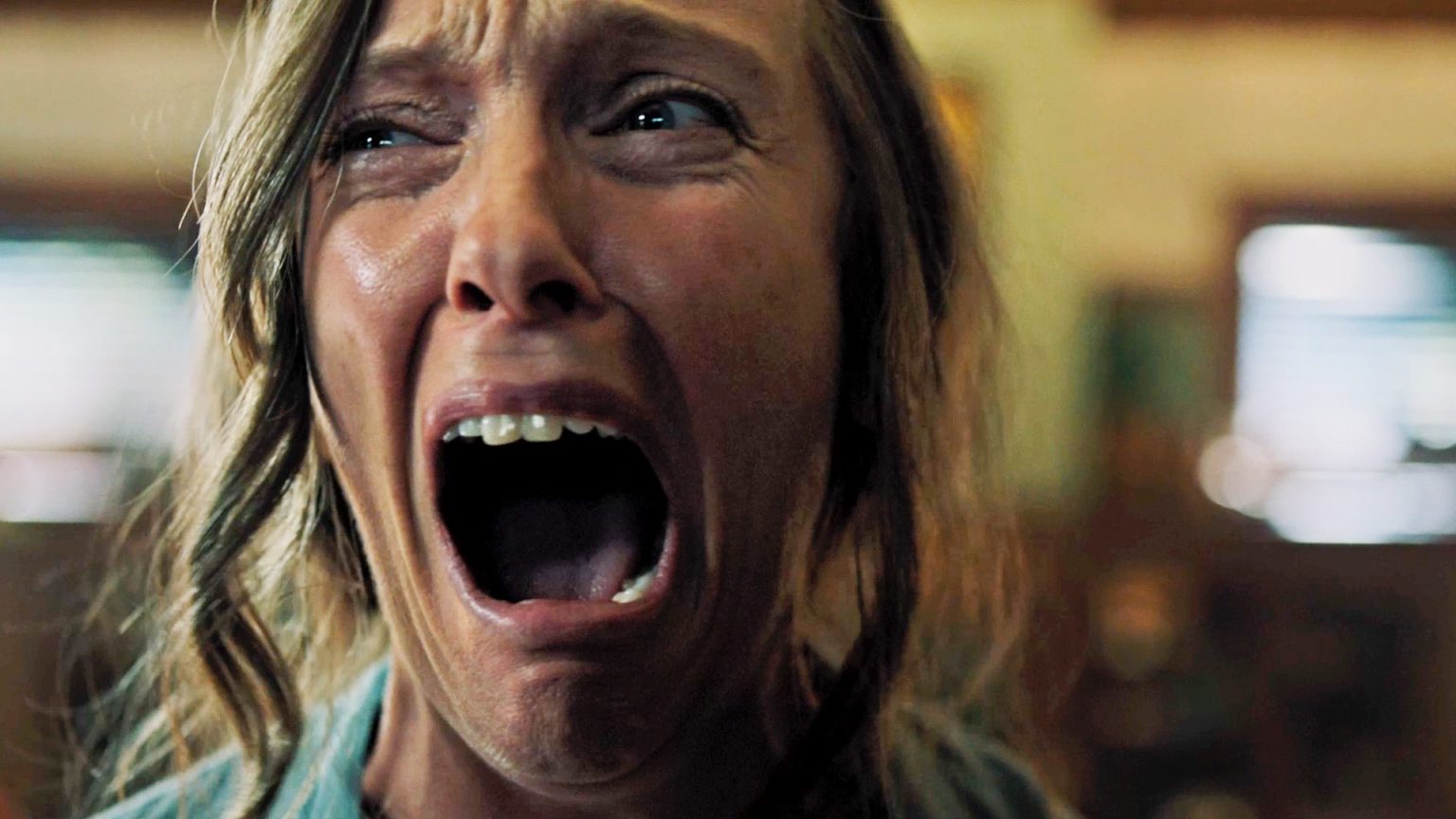The enormous hype surrounding Hereditary since it played at Sundance is absolutely justified—but only if audiences know what they are getting themselves into. This isn’t so much a modern, jump-scare-ridden film meant for cheap scares—for as much as I liked the intensity and careful, the intelligent sound design of A Quiet Place, it is a film hellbent on bludgeoning its audience with jump scares. They work but in a manipulative way. Hereditary, instead, is more like a family tragedy, imbued with supernatural elements. Imagine Bergman’s Scenes of a Marriage mixed with the slow-burning horror of Polanski’s Rosemary’s Baby or Repulsion.
Hereditary’s most horrific moments rarely take place during the few purely supernatural scenes (though those will surely haunt you too), but rather when a mother tells her son what she really thinks of him. The tension is heightened by how darkly lit the scene is. Shot-reverse-shot; the mother, then the son. The horror is simple, effective, and disquieting.
In fact, all of the horrors of Hereditary stems from director Ari Aster’s willingness to go to places, emotionally and psychologically, that not many other filmmakers, even in the horror genre, are willing to go—and all this in his first feature film!
Let’s rewind. The movie is situated around a wealthy, but troubled family. The film starts with an obituary reading for Ellen, the mother to Annie Graham (Toni Collette), then a funeral. From here, we learn that the reclusive mother to Annie lived a harsh life, one influenced by mental illnesses. As the film progresses, we realize the late Ellen was likely hiding a dark secret. We also learn of Ellen’s weird infatuation with Annie’s daughter, Charlie (Milly Shapiro)—who has an alarming interest in dead animals and drawing portraits of her family members in pain. From this moment, the film’s uneasiness begins to creep along, with every second onward causing uncomfortable dread.
From the first shot, a long take from a window at a treehouse, that slowly pans to a dollhouse, that then becomes a window into the actual room of the son, Peter, being awoken by his father, Steve (Gabriel Byrne), for the funeral, Aster’s stylistic choices represent a cold, detached feeling of a demented spirit overlooking the Graham family during their most turbulent and disturbing times. There are scenes that feel like nightmares that become real and moments that you know are real but feel more nightmarish than anything witnessed in last year’s It. Aster wisely never over-explains, instead of demanding that the audience let the images and ideas simmer. In fact, the film demands that you re-watch it to pick up on all of its secrets, but whether a viewer can stomach it twice might be too tall of a task.
Impressively, much of the film’s scares and tragic drama are down to the stunning performances of Toni Collette and Alex Wolff, who plays her oldest child, Peter. Most of the story of the film and the family’s history is in the unspoken details, thus leaving these two central actors to do a lot with limited exposition. Both are worthy of Oscar nominations—if not outright wins.
In fact, the whole cast is excellent, with Ann Dowd providing one of the creepier supporting performances in recent memory. Yet it’s Collette baring her soul and psyche on-screen that steals the show, and Hereditary takes full advantage of her talents. One moment she’s grieving the death of her loved ones, the next moment she’s a loving wife, and at other times she’s lashing out at her son. Each specific moment feels all-too-real. And somehow, all of this is within the first hour of the film, before she, and the film, go totally bonkers. For an actress of Collette’s talent, who has won an Emmy for The United States of Tara and received an Oscar nomination for The Sixth Sense, she rarely receives the credit she deserves.
Hereditary will surely change that perception; it’s a groundbreaking moment in the middle of America’s horror film resurgence (Get Out, It Follows, A Ghost Story, The Witch).
Surely, the ending won’t work for all, as the terrifying crescendo before the climax slows the last five minutes and dissolves the tension. However, for a film that willingly looks at real evil, and never shies away from the horror of what real grief and mental illness look like, the ending feels necessary. If Aster had gone further, the film may have been too bleak for any audience to sit through. But, in the end, the power of the film isn’t in the evil spirits haunting the Grahams, it’s in the denial of one’s own guilt and resentment towards one’s family.
Can you ask for anything more from a horror film?




